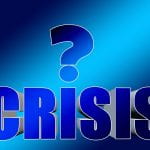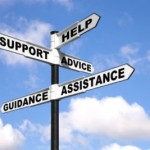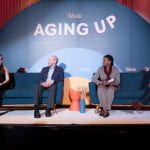It was so exciting to be a guest on the fantastic Mel Robbins’s podcast. We had a great time talking about elder wisdom and how it can be used in everyday life. And the enthusiasm has been amazing (nearly 300,000 views so far!). Thanks Mel for a terrific experience! Watch it here.
Category Archives: Uncategorized
Morgan Housel on “30 Lessons for Living”
If you haven’t read Morgan Housel’s books on money and finance – go get them right away. There is no wiser and more sensible thinker today on the question of how to earn, spend, save, and value money. Housel’s books are full of practical advice derived from scientific studies and real-world experience. His latest is The Art of Spending Money, and it’s a terrific read.
Because I admire him so much, I am thrilled by how he uses the research from the Legacy Project. In my book, 30 Lessons for Living, I share the finding that not a single one of the over 1200 elders I interviewed said their major regret was “I didn’t make more money.” They focused on people and experiences, and good they had done in the world, over aquiring things.
Here’s Morgan discussing that finding, and here’s a recent article in Forbes where he weaves it into his work.

What Our Elders Want Today’s Graduates to Know
I was asked to share some wisdom from the Legacy Project Elders with college students graduating this month. I think there is a strong message of hope for young people from the challenges of the last year.
First, congratulations!! But since many people will be congratulating you, I wanted to leave you with one particular thought to carry forward with you.
As some of you know, I’m a gerontologist who has spent a lot of time over the past 15 years talking to very old people about the historical events they have lived through and what they learned from them.
Almost every one of these people, who lived through war, poverty, displacement or famine, told me the same thing: Despite the hardship, it made them better, stronger, more compassionate people and that they had lived fuller lives as a result. Many of them told me that their lives were radically changed by the crisis they lived through, but it made them resilient in the face of everything else life threw in their way later on.
I believe that you, too, have learned life lessons you will never lose.
You have suffered through this pandemic. You have missed out some of the ordinary joys of college life, be it parties, spring break, or in-person classes. You probably worried daily about your own health and those of your loved ones. You lived through a frighteningly divisive time, with conflicts in the country, in cities, and even in families.
But in spite of all that, from years of studying the wisdom of very old people, I can assure you of one thing.
One day, 60 or 70 years hence, you will have reached an age that seems utterly impossible to you now. You will be talking to a group of young people whose age, at that point in your life, will seem equally impossible to you then.
And you will tell them – as the elders told me – of how you lived through one of the greatest crises in American history, how you survived, and how you thrived. You will tell of how you acted, how you coped with stress and fear, and how you helped others. You will reassure them that they, too, can overcome what seem to be insurmountable problems.
As your lives unfold over the coming decades, you will likely find, as previous generations have, that unexpected sources of strength come from living through troubled times, like resilience, wisdom, and compassion. Those are gifts that you can take along with your hard-earned degree. But that’s far in the future. For now – go celebrate!
Wisdom about Family Estrangement from Those Who Have Lived It
In my new book, Fault Lines: Fractured Families and How to Mend Them, I asked the advice of nearly 300 people who have lived through family rifts. Take a look at this new video to get an idea of the kinds of stories they tell.
An Elder’s Advice for Getting through the Crisis
We have been asking older people for their advice on how we can cope with the current corona virus crisis. They have lived  through other cataclysmic events, so we should take their suggestions very seriously. We’ve opened a new site where older people can share their advice, or younger people can interview their elders and post their advice. Please join in!
through other cataclysmic events, so we should take their suggestions very seriously. We’ve opened a new site where older people can share their advice, or younger people can interview their elders and post their advice. Please join in!
Ken, age 82, offers his advice to younger people:
The COVID-19 pandemic is a highly unusual period in everyone’s life. It has seemingly turned life up-side-down. I have experienced a variety of crisis in my 82 years, such as World War II, the polio epidemic, deadly hurricanes, floods, and other traumatic events. There was a common thread that runs through each of them. That is, the people who truly care put their shoulders to the grindstone and do whatever it takes to help others survive and carry on. By pitching in and following the prescribed protocols and mandates, we will be helping to mitigate the virus’ deadly threats. That’s the least we can do.
We can do more if we live in a neighborhood or a community that needs help. Know what is happening to people’s lives as we work our way through this challenge. Start with one’s own family, one’s extended family, and one’s community. Families are making huge sacrifices and their concerns are not limited to health but to economics as well. It doesn’t matter if a person is 4 years old or 104 years old, there may be things that can be done to help one in need. Yes, be concerned about one’s own situation but focus on the greater good that could be done. Every day in life we are presented with a question. Am I contributing toward goodness or not? When we do contribute we can look back and not complain about the past but to have gratitude for how we were able to respond. Our gratitude can be for all the medical personnel and first responders who are on the front lines protecting us. We need not overlook all the essential workers and the legions of volunteers who devote their time to make lives better for their communities. Yes, these are indeed challenging times but as all life on this amazing planet, we are all interconnected and what we do to help others makes life not only have much meaning but makes us more human.
One brief story. I live in the Adirondack Mountains but I grew up along the coast of Rhode Island. As a child during WW II, we had many more governmental restrictions than the current virus restrictions. Most everything was rationed or totally not available. Many food items were no longer available. Most everyone had to walk anyplace. There was limited gas for cars. No cars were being made anyway. Auto makers were only making tanks. We had to use ration stamps when purchasing things. We could purchase only one pair of shoes each year. We had total blackouts on many nights do to German subs waiting off-shore to sink American ships. Daily practice bombing runs took place over our home by the Naval Aviators. So what do little kids do in my community? We had our little wagons and went door to door asking for scrap metal of any kind and rags. The metal went into making military weapons and the rags were for the war effort at home where they were need in the factories. Everybody pitched in to defeat the enemy. There was great fear on the part of our community but we all stuck together and did whatever we could to survive. Neighbors helped neighbors. That was then and this is now. Neighbors still help neighbors.
Elder Wisdom for Living through a Crisis
The majority of our population has never lived through a global crisis like the current one. But there is a source of wisdom and  reassurance for living through catastrophic times that has existed for as long as human beings have been human: The oldest people among us.
reassurance for living through catastrophic times that has existed for as long as human beings have been human: The oldest people among us.
I began interviewing the oldest Americans in 2003, focusing on people in their 80s, 90s, and beyond. It was an opportune moment, because many members of the “War and Crisis Generation” were still alive. I was able to capture the advice of people who had lost everything in the Great Depression, fought in World War II or kept their families together during that time, or survived the Holocaust. Remarkably, I interviewed over 60 people who lived through the 1918 Spanish Influenza epidemic, to which the current one is being compared.
You can find detailed advice for living well through hard times in my book, 30 Lessons for Living: Tried and True Advice from the Wisest Americans. But there’s one point I will make here that stands out: You will get through this, and it will one day be a memory rather than a current reality. In hundreds of interviews with people who lived through world-shattering events, I saw how they survived and eventually thrived. Taking the long view at a time like this can help you maintain peace of mind.
As you hunker down, take some time to listen to the elders who gave their advice on our YouTube Channel. Here are three of our favorite lessons about being resilient and not giving up when times get tough.
The Problem of Ageism: How Does it Affect Both Old and Young?
The problem of ageism is coming out of the shadows and into the public eye. I had the opportunity to be part of a  fascinating panel hosted by The Atlantic, where we discussed the growing problem of age discrimination and what can be done about it. I was able to talk about my work with the World Health Organization, which is working to combat ageism around the world. Please share your thoughts on this important issue!
fascinating panel hosted by The Atlantic, where we discussed the growing problem of age discrimination and what can be done about it. I was able to talk about my work with the World Health Organization, which is working to combat ageism around the world. Please share your thoughts on this important issue!
Elder Wisdom, the Pope, and 30 Lessons for Living
I have to admit that I never expected to be compared to  Pope Francis! Now if I am totally honest, I wasn’t exactly compared to the Holy Father. However, my book, 30 Lessons for Living, was just favorably compared to a book by Pope Francis and Friends, which still feels pretty flattering. And the Pope’s book is a very interesting one.
Pope Francis! Now if I am totally honest, I wasn’t exactly compared to the Holy Father. However, my book, 30 Lessons for Living, was just favorably compared to a book by Pope Francis and Friends, which still feels pretty flattering. And the Pope’s book is a very interesting one.
Pope Francis published a earlier book with his answers to children’s questions. He followed it up with this one:
Now in his 80s, Francis has published Sharing the Wisdom of Time, along with 250 interviewees, as well as editors and writers at Loyola Press and elsewhere — curated by Jesuit Fr. Antonio Spadaro, editor-in-chief of La Civiltà Cattolica.
Ranging in age from their 60s to their 90s, the participants muse on the meaning of events in their lives that relate to work, struggle, love, death and hope as they share pivotal moments and the lessons learned.
Both wealthy and poor, educated and unskilled, the participants had worked as farmers, historians, teachers, recyclers, priests, pastors, chefs, nurses, writers and film directors, among other occupations. There’s also a 98-year-old veteran (he died several months before this book was published), who reminiscences about his bombing runs during World War II.
Whether Catholic or not, the book is of interest (and possibly inspiration) to anyone interested in elder wisdom and how it can transform our lives.
Having Trouble Facing Monday? Listen to this Elder!
I’ve been doing a lot of traveling, and I was a bit overwhelmed looking forward to the coming week. Don’t get me wrong – I  love my job. But facing the emails and tasks that are waiting can take a bit of the usual spring out of one’s step.
love my job. But facing the emails and tasks that are waiting can take a bit of the usual spring out of one’s step.
So I went back to the Legacy Project Elders, and I found what I needed. Flora, 80 and still very active, suggests the following idea. I’m trying it tomorrow (and I feel better already)!
Flora’s approach to living is to embrace the pleasures each day holds, and she reinforces that attitude with a daily habit:
I like to start out the day with a list of ten things that I’d like to do that day. Now, I’m not going to accomplish all of them and probably only one of them is going to work out, but I never know which one, at the beginning of the day. It’s not a “to do” list—it’s just a list of what I would like to try doing. I’m always looking for new things to try. They don’t have to be difficult things—I’m probably not going to take up hang gliding or something like that. Something simple. Finding new opportunities and new challenges each day.
If I were to give any particular word of advice, I would say, go about the business of the day, humdrum as it might be, but walk on your tiptoes, waiting for the “aha!” experiences. That happens when you’re going around the corner doing the normal, everyday things. So be prepared for those “aha!” experiences that may happen anytime. That way you’re always open to, and watching for, something different—watching for a feather from an angel’s wing.
Edwina’s Advice about Growing Old: “Find the Magic!”
Edwina Elbert, 94, on the adventure of aging:
I tell people:
“Each person born has been chosen by fate from a trillion possibilities. How then can you complain of bad luck when you have won the greatest lottery of them all?”Now isn’t that true?
People have to learn to be thankful. To see the wonders of this world – you know, we are here for such a short time. I didn’t realize I was old until I was ninety years old. There’s still so much to see and so much to read, and so much to learn. We should be thankful that we’ve had this opportunity to live. It’s strange about this…the way that it’s all set up so that we only have a certain length of time. But we’re lucky. Aren’t we lucky to have seen the Empire State building and all of this stuff?
My advice about growing old? I’d tell them to find the magic. The world is a magical place in lots of ways. To enjoy getting up in the morning and watching the sun come up. And that’s something that you can do when you are growing older. You can be grateful, happy for the things that have happened. You should enjoy your life. Grow a little.
Just because you’re getting older doesn’t mean that you need to stop growing. I used to think that when you got old you sat back in a rocking chair and let the world go by. Well that’s not for me and that’s not for a lot of people. I can’t dance anymore, but if I could I would.
There’s no reason for anybody in this world to ever be bored. That’s one thing I’ve always said. Well if I died and went to heaven, I’d be bored to death with how they say heaven is. There’s no need for you to be bored in this world. There’s so much out there. And your attitude, be optimistic. I’ve been optimistic all my life. Even as a little girl I can remember that no matter what happened it would turn out all right. In this country almost everybody is taking antidepressants. Why in the world are people taking antidepressants? It should be a wonderful world. Mine has been a great ride, believe me.
